Emerson Stevens and Darnell Phillips would say the Innocence Project at UVA Law changed the world.
So would Messiah Johnson, Bennet Barbour, Edgar Coker, Gary Bush and others.
These ex-prisoners, falsely convicted of serious crimes such as rape and murder, are all free because of the work the project has done over the past decade to demonstrate their innocence.
Stevens was convicted of the 1985 abduction and murder of Mary Keyser Harding, a Lancaster, Virginia, mother of two. His sentence was set at 164 years.
Phillips was convicted of the 1990 rape of a child in Virginia Beach and sentenced to 100 years in prison.
“When I walked out of there, I just saw everything open up,” Phillips told The Virginian-Pilot following his release. “My senses became alive again.”
Phillips walked out of prison in September 2018 and Stevens in May 2017. In both cases, clinic directors Deirdre Enright ’92, who founded the project at UVA Law, and Jennifer Givens were were on hand to greet their clients.
Stevens, shortly after being released, donned a shirt that read, “Sorry, I can't hear you over the sound of my freedom.”
Phillips raised his hands to the sky and felt the rain.
Enright and John Grisham discuss the future of criminal justice reform on “Common Law.”
The Innocence Project Clinic is the main forum for the project’s efforts. The for-credit class gives students practical experience investigating and litigating wrongful convictions in Virginia. These days, the for-credit clinic operates alongside a separate, non-credit student pro bono clinic.
Enright and Givens said much of their time is spent following a thread that may take years to unravel.
Sometimes it’s connections that pay off, as in the Stevens case. The evidence didn’t add up and the project had serious questions about how the investigation was conducted. They knew documents existed that could shed light on their concerns and, perhaps, turn the case.
“We went through three commonwealth’s attorneys and two sheriffs before we found those files,” Enright said. “It was only because the new sheriff called us when someone on his staff found a box in the room for incinerating and brought it to his attention that we got the files.”
Givens added, “Deirdre had spent years in Lancaster County developing a relationship with that office. The scary thing is it so easily might not have happened.”
Other discoveries involve greater happenstance. In the case of Phillips, the prosecutor told Phillips and the trial court that the physical evidence in the case had been destroyed. But Givens randomly learned that might not be the case while speaking on the phone with a Virginia Beach court clerk in 2015.
“She said, ‘We have a bag of stuff here,’” Givens said. “Nobody had ever said that before.”
Givens and two students drove to the courthouse evidence room and discovered that a rape kit and garments from the original investigation indeed had been in storage, but had never been tested.
The directors said finds like these don’t mean the battle has been won. It’s usually just a start.
In Phillips’ case, after two labs failed to come up with anything conclusive from the time-denigrated samples, a third lab in California found evidence during the summer of 2017 that at least two men had touched the garments, and neither man was Phillips.
Enright followed up on the new evidence by flying to see the victim, now an adult, who said in a sworn affidavit that police used deception to convince her to name Phillips as her attacker. They told her that Phillips had assaulted other children, that his alibi did not check out and that her blood was found on his underwear at his home—none of which was true.
Her statement turned out to be what was most persuasive to Virginia’s parole board, the directors said.
While both Phillips and Stevens have been freed by the board, neither have been fully exonerated, and the project continues to represent them.
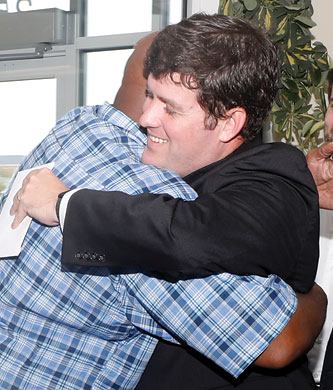
Dennis Barrett ’09, an attorney with Schaner & Lubitz who was a member of the original Innocence Project Clinic and the first student to work on Phillips’ case, said the clinic has had a meaningful impact for both the clients and the students.
“Most importantly, the clinic has helped free a man that has been unjustly imprisoned for nearly three decades, but I also know the clinic has had an indelible impact on those students fortunate enough to work on it,” Barrett said. “Few of us will end up with a job working on wrongful convictions full time, but none of those who have worked at the Innocence Project will leave the experience without a profoundly different view of the justice system that we'll carry forward in our personal and professional lives.”
The effort got its start at the urging of now-UVA President Jim Ryan ’92, then vice dean, in coordination with then-Dean John C. Jeffries ’73. Enright proposed the plan and budget for the clinic, beginning in June 2008.
The clinic expects to add a third attorney this year thanks to the generosity of a matching fundraising campaign instigated by Jason Flom, a founding board member of the national Innocence Project.
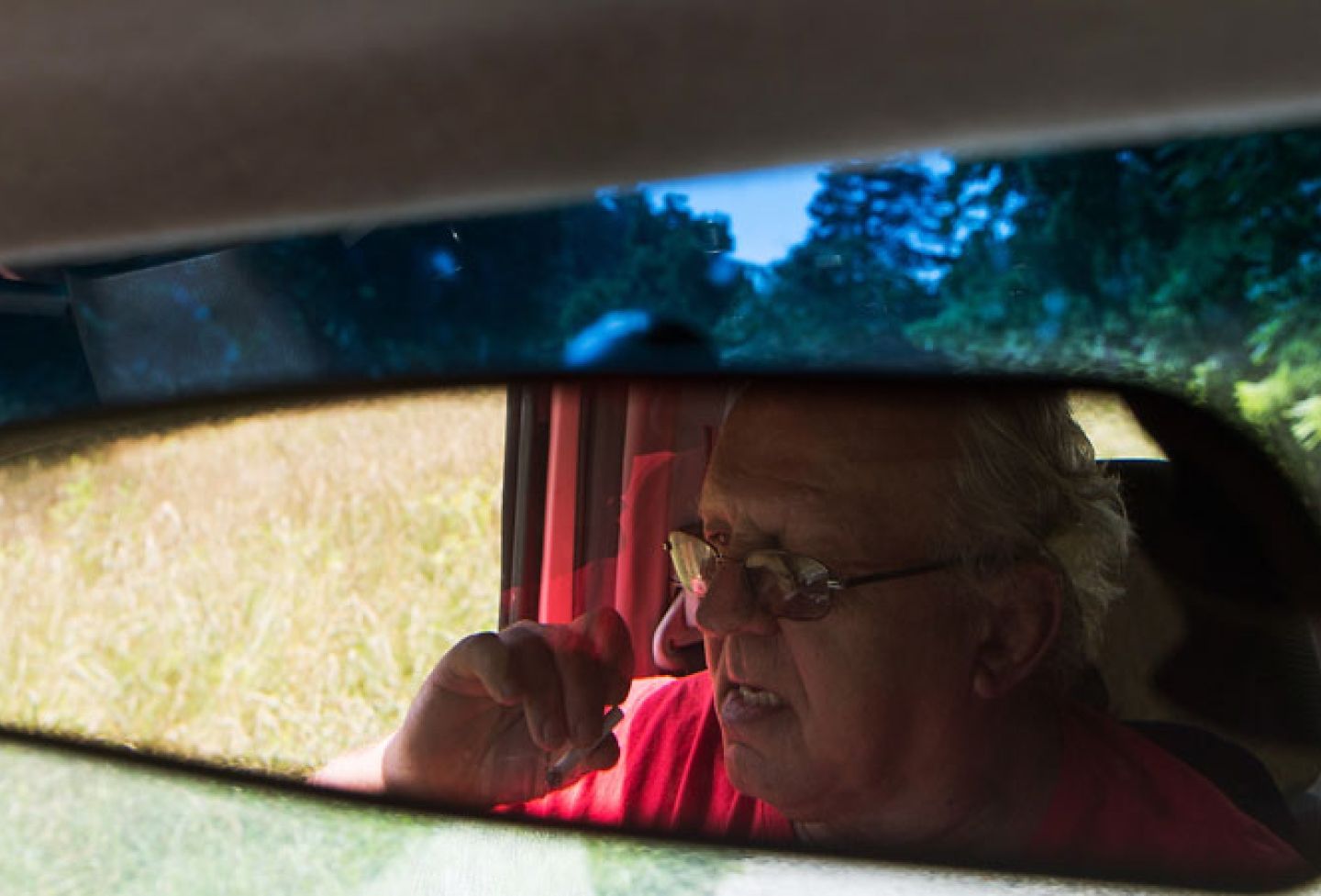
Client Gary L. Bush had an alibi for at least one of the robberies he was accused of, but eyewitness statements proved more persuasive in court. Photo by Daniel Sangjib/Richmond Times-Dispatch
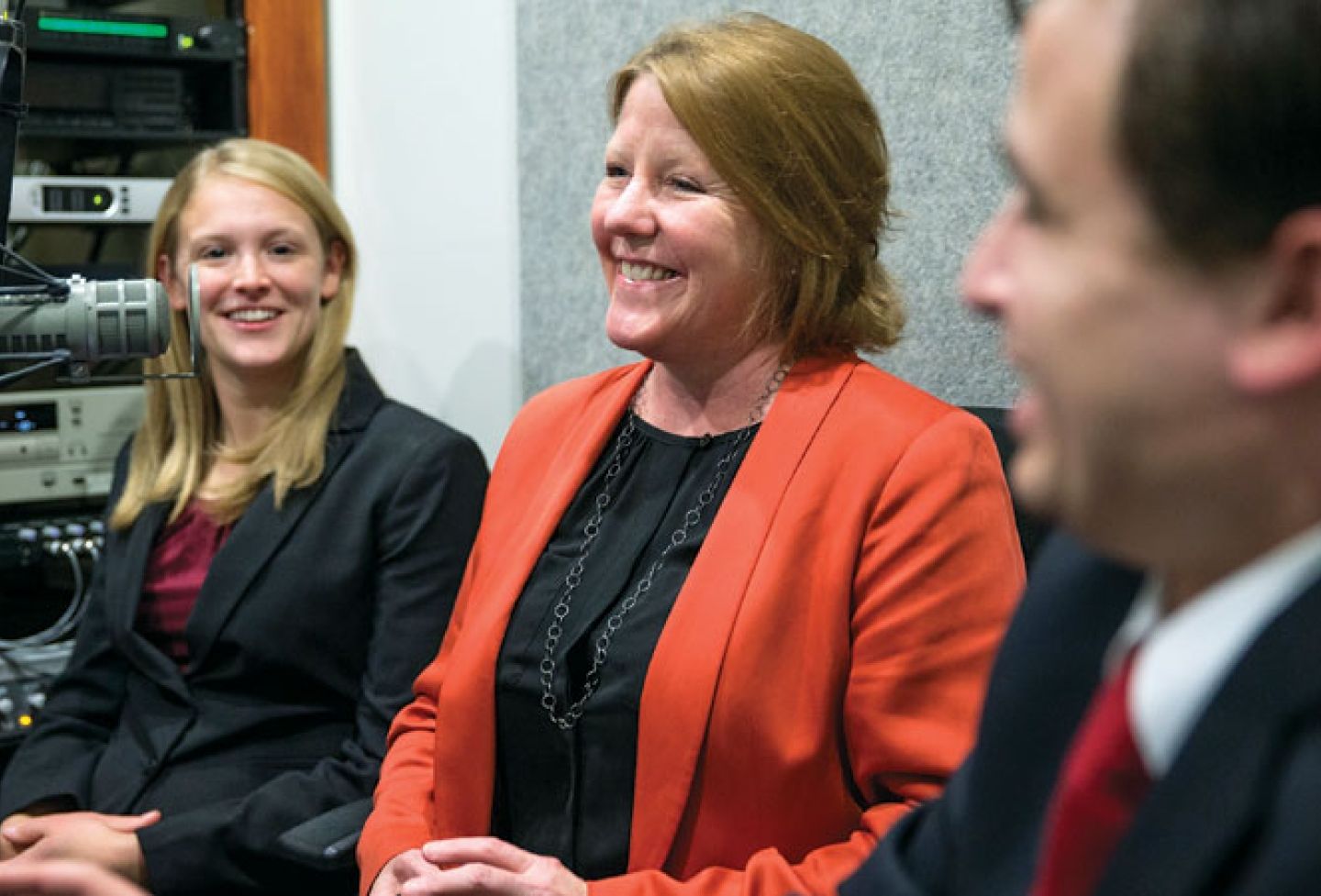
Katie Clifford ’15, then president of the Virginia Innocence Project Pro Bono Clinic, clinic director Deirdre Enright ’92 and Mario Peia ’15 participated in the “Serial” podcast. Photo by Dan Addison
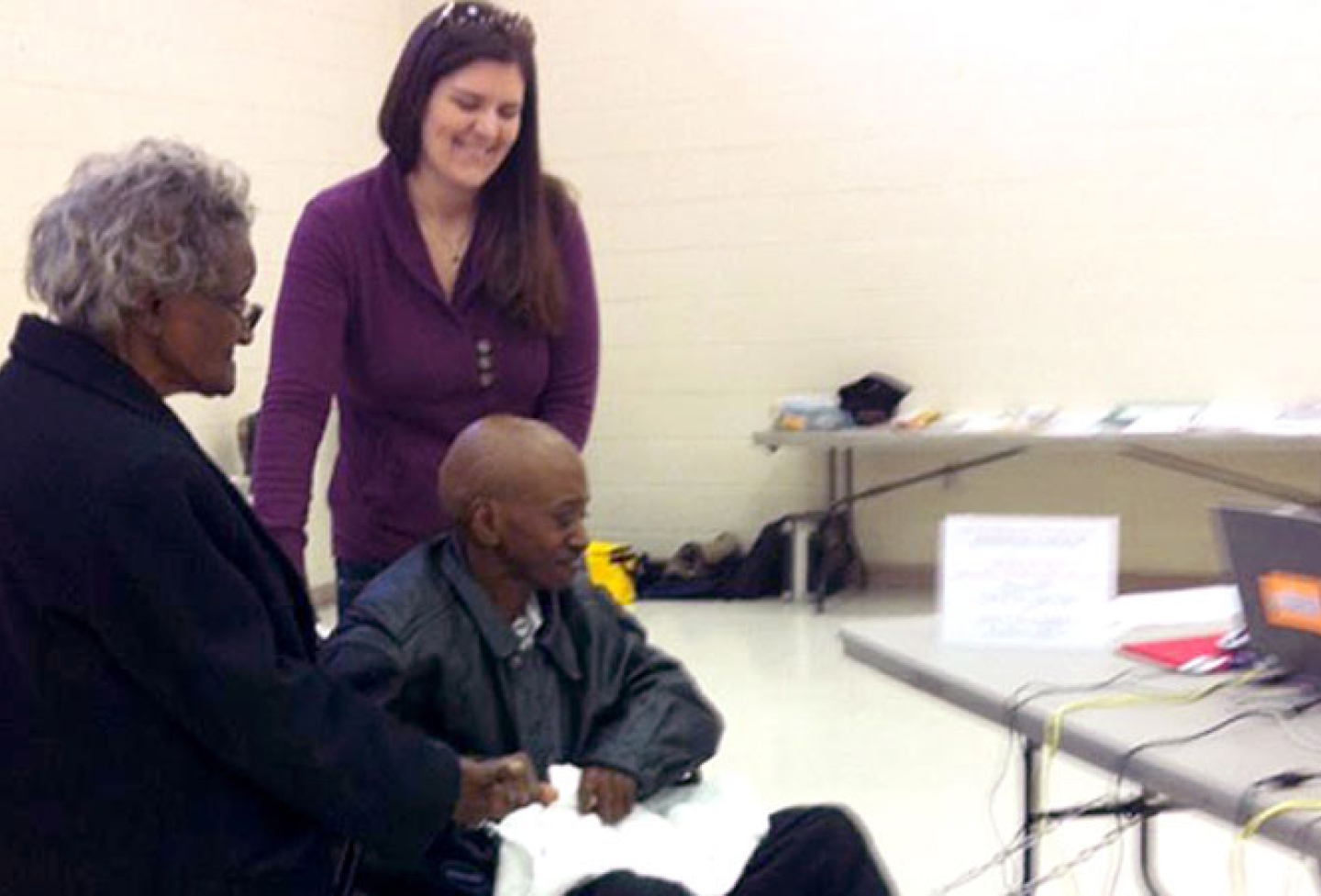
Alexandra Meador ’14 accompanied Innocence Project Clinic client Bennett Barbour to the polls as he voted for the first time in 2012.
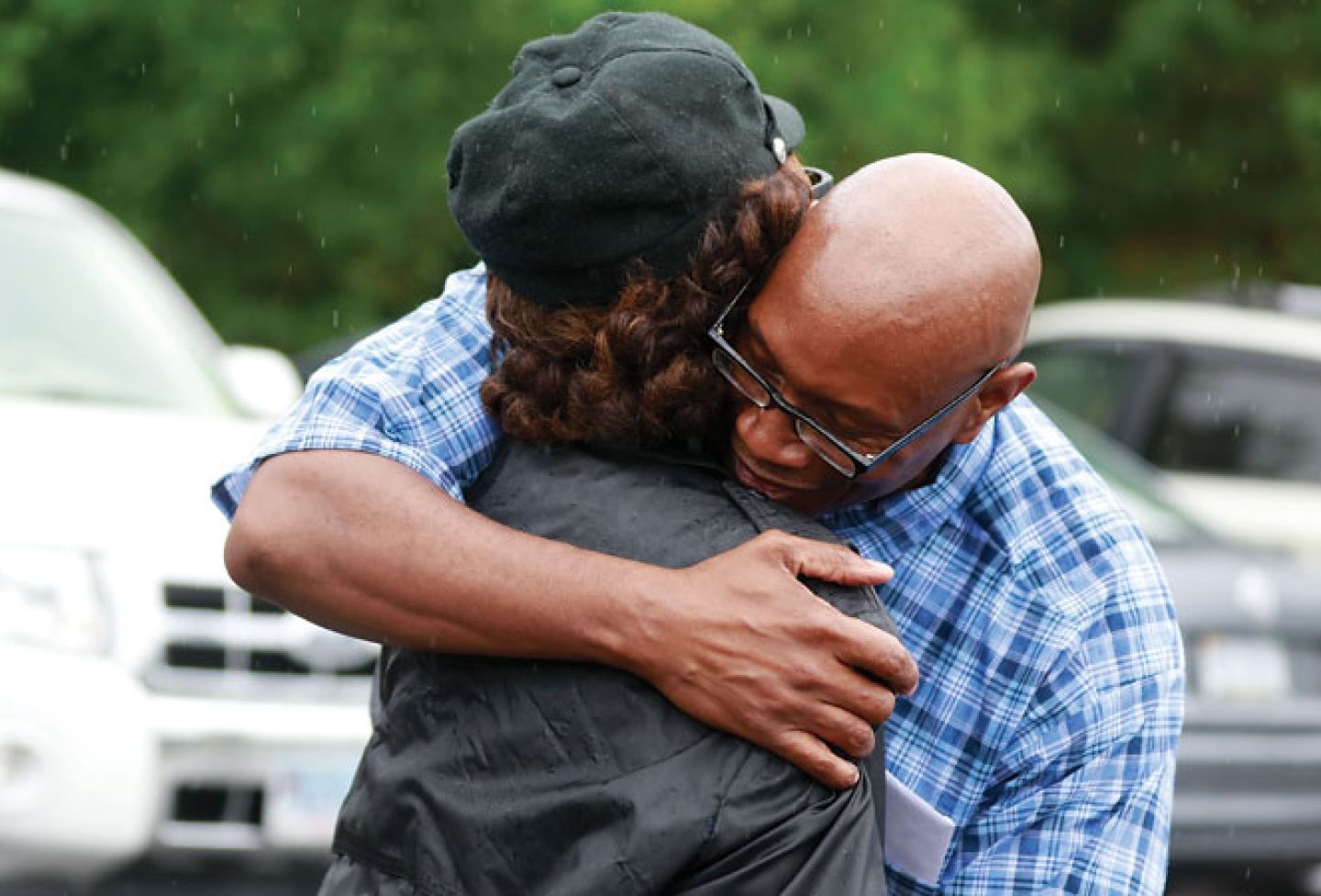
Darnell Phillips greets his mother in September after being released from prison for a crime the Innocence Project Clinic says he never committed. Photo by Keith Cephus Photography
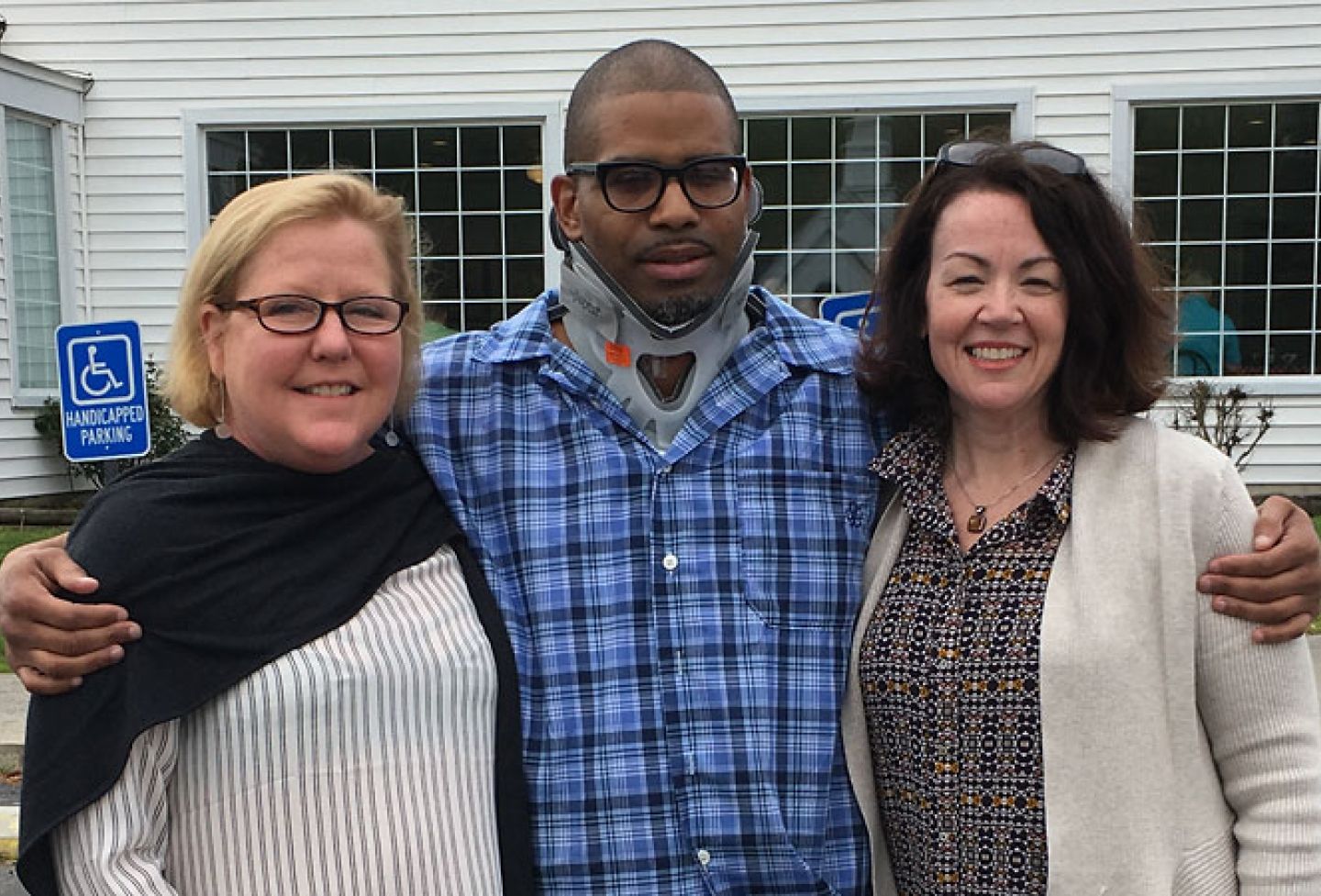
Recovering from a surgery, Messiah Johnson poses with Innocence Project Clinic directors Deirdre Enright and Jennifer Givens following his release, and just prior to his first meal outside of prison in 2018. Photo by Maire Enright Lee
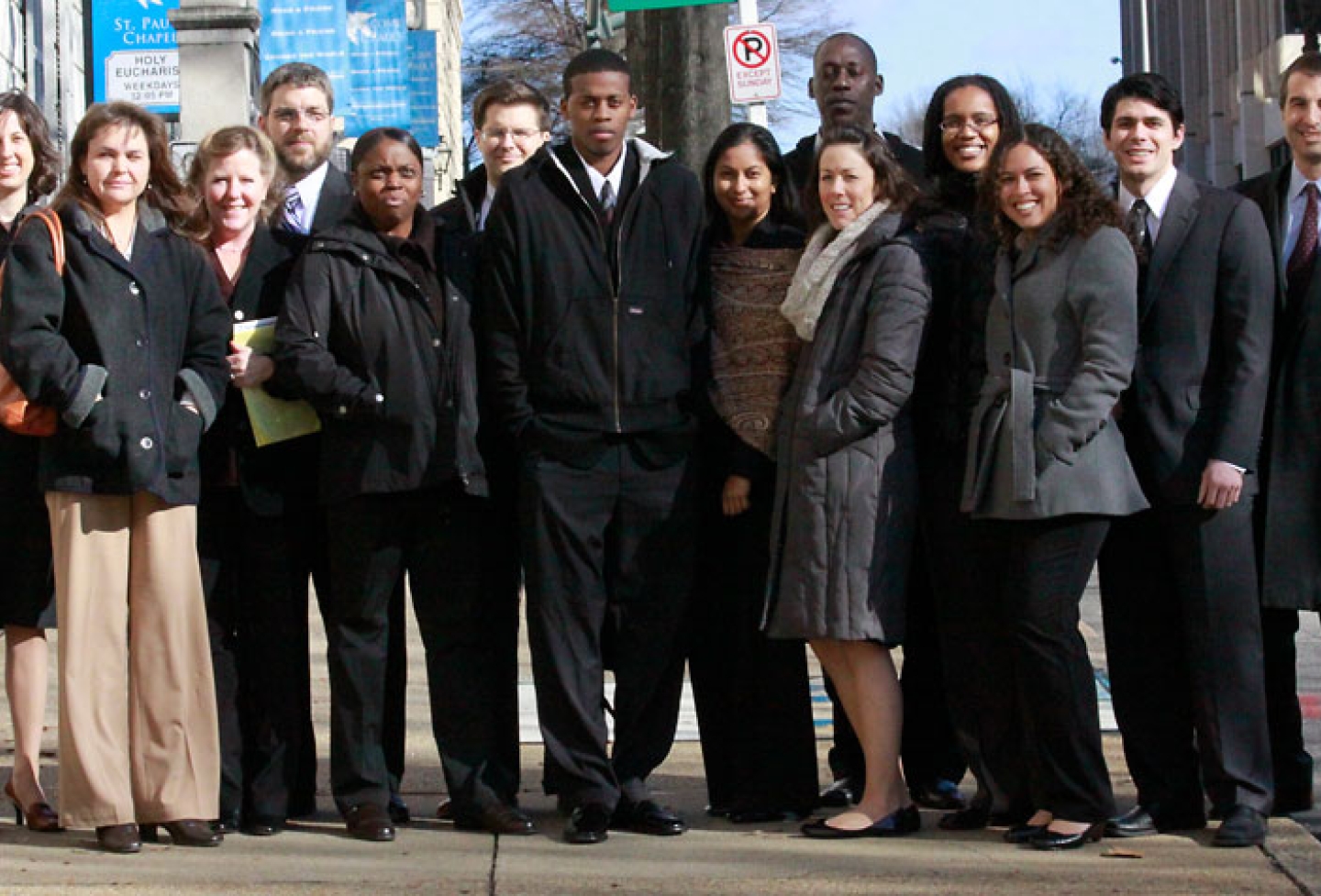
Edgar Coker (center), gathered with family, supporters and his legal team — including students, clinic professors and representatives from JustChildren at the Legal Aid Justice Center and from the law firm McGuireWoods — following his hearing in January 2012 before the Virginia Supreme Court.
Founded in 1819, the University of Virginia School of Law is the second-oldest continuously operating law school in the nation. Consistently ranked among the top law schools, Virginia is a world-renowned training ground for distinguished lawyers and public servants, instilling in them a commitment to leadership, integrity and community service.


